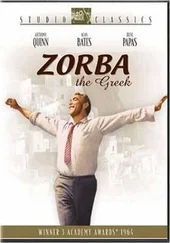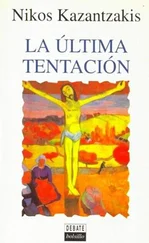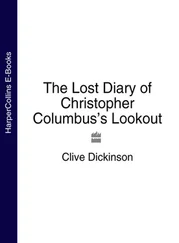Nikos Kazantzakis - The Last Temptation of Christ
Здесь есть возможность читать онлайн «Nikos Kazantzakis - The Last Temptation of Christ» весь текст электронной книги совершенно бесплатно (целиком полную версию без сокращений). В некоторых случаях можно слушать аудио, скачать через торрент в формате fb2 и присутствует краткое содержание. Жанр: Современная проза, на английском языке. Описание произведения, (предисловие) а так же отзывы посетителей доступны на портале библиотеки ЛибКат.
- Название:The Last Temptation of Christ
- Автор:
- Жанр:
- Год:неизвестен
- ISBN:нет данных
- Рейтинг книги:5 / 5. Голосов: 1
-
Избранное:Добавить в избранное
- Отзывы:
-
Ваша оценка:
- 100
- 1
- 2
- 3
- 4
- 5
The Last Temptation of Christ: краткое содержание, описание и аннотация
Предлагаем к чтению аннотацию, описание, краткое содержание или предисловие (зависит от того, что написал сам автор книги «The Last Temptation of Christ»). Если вы не нашли необходимую информацию о книге — напишите в комментариях, мы постараемся отыскать её.
The Last Temptation of Christ — читать онлайн бесплатно полную книгу (весь текст) целиком
Ниже представлен текст книги, разбитый по страницам. Система сохранения места последней прочитанной страницы, позволяет с удобством читать онлайн бесплатно книгу «The Last Temptation of Christ», без необходимости каждый раз заново искать на чём Вы остановились. Поставьте закладку, и сможете в любой момент перейти на страницу, на которой закончили чтение.
Интервал:
Закладка:
Kazantzakis, like Yeats and Synge, felt that great literature must be national literature. He was convinced that the soul and life-blood of Greece was its peasantry, and that the great achievement and expression of the peasantry was the popular language, known as the “demotic.” He knew that the Greek people had (and have) an imagination “fiery and magnificent and tender”; in the Odyssey, therefore, as in all his works, he championed the demotic as against the “puristic” language favored by the Athenian intellectuals. In translation this element of his work is largely lost, and the English or American reader of The Last Temptation of Christ is in a sense cheated out of the exhilaration of meeting with a type of speech totally foreign to his own. Happily, although the flexibility of syntax and richness of vocabulary of demotic Greek cannot be reproduced in English, the language’s reliance on metaphor can often be conveyed. Demotic always prefers the concrete to the abstract: the sun does not “hang” in the sky, it “tolls the hours” (that is, it is suspended just as the bell is suspended in the campanile); a camel does not “get up,” it “demolishes its foundations”; the time is not measured by hours but by how many reeds the sun has advanced in the sky. If this love of metaphor is retained in English often at the price of awkwardness, this is but a small price to pay for some feeling, however slight, of the essential Greekness of this novel, which although set in the Holy Land, is peopled by Greeks in disguise. (Witness the use of Charon as personification of death; and the lyre in Chapter XXVII, played with a bow as it is to this day by the peasants of Crete.)
Since it is impossible to reproduce the actual words Kazantzakis used and since he looked upon the extraordinary love of words as the key to the peasant imagination, as well as its expression, it is important to say something further about the nature of the demotic vocabulary. Its richness and flexibility are due to the free borrowing of words over the centuries from Romans, Franks, Italians, Turks, Slavs and others; to the ease with which new words can be compounded from existing roots; to the continued existence of dialect areas; and the never-ending metamorphosing of words by villagers who are not yet sufficiently awed by grammarians (as the English have been since the seventeenth century) to abandon these extravagances.
Languages are said to mirror the character of the peoples who speak them, and if so, demotic Greek shows us a race to whom imagination and audacity come before precision and efficiency. To comprehend how completely different this language is from present-day English (English too once had many of the fluid characteristics of modern Greek), the reader is invited to contemplate the noun aspálathos, the name of a shrub which, as one might expect in Greek, also has four or five completely different names. To add to this multiplicity, the base-word aspálathos undergoes seemingly unlimited metamorphoses in the various parts of Greece. The vowels, for example, are juggled in numerous ways, as can be seen in the forms aspilathos, aspálathos, aspólat-thas and asphélachtos; the endings are altered: aspálathrous, aspálethres, aspálathras; the accent is shifted: aspalathròs, asphelechtòs; the original gender (masculine) is changed to feminine: aspálathra, and neuter: aspálatho; the first syllable is discarded: spálathos, sphelachtòs, etc.; consonants are added: aspálarthas, or altered: asphálachtos; and so on and so on, until we find such nearly unrecognizable forms as xelaphtós, aspádaros, aspálichtro and spólasso.
Now see what else the peasant imagination can do with this word In Crete, the suffix eas is added to form aspalatheàs which means “an area covered with aspalathos” (or more precisely in English, since aspalathos is the plant we know as “hairy broom”-“an area covered with hairy broom”). This noun is then turned into an adjective-and here we can see how the audacious metaphorical language of the peasants comes into being. The Cretan farmer, observing his dingy gray cat near an aspalatheàs, notices that the cat and the area of aspalathos have the identical color. He therefore begins to call his-and soon all similar cats-“area-covered-with-hairy-broom” cats, using the new adjective to mean “dingy gray.”
It is obvious that in the hands of an imaginative artist the potentialities of a language with such flexibility, such love of words for their own sake, such metaphorical richness and syntactical and grammatical looseness, are unlimited. The nature of the demotic vocabulary, for instance, enabled Kazantzakis in the Odyssey to apply over two hundred distinct epithets to Odysseus. (They are catalogued by Kazantzakis’ friend and biographer, Mr. P. Prevelakis.)
But it is also obvious why the “purist” professors of Athens, whose experience with area-covered-with-hairy-broom cats is apt to be limited, should want to curb the extravagance and looseness of the demotic by purging foreign and dialect words and by stabilizing spelling, grammar and syntax more or less according to Atticistic Greek, the traditional literary language.
In championing the demotic, Kazantzakis felt he was defending the soul of the common people against the unimaginativeness of pedantic intellectuals and, even more important, against the ever-expanding forces of newspaper jargon and faulty composition courses in the schools. He was violently attacked not only by the purists but by the advocates of demotic, who claimed he went out of his way to use obscure words. But he zealously defended his position, and the fact that his work does so well convey the spirit of the people is perhaps the best proof that he was right.
The Odyssey was published in 1938. Soon after came the Second World War, and after that the Greek Civil War, during which Kazantzakis served for a short period as Minister of National Education in a quixotic attempt to reconcile the opposing forces. He resigned in despair, now more than ever convinced of what he had known for many years: that because of the political and religious situation in Greece he must live in exile. He settled in France (eventually at the ancient Greek city of Antibes on the Riviera) and entered public life once more as Director of the UNESCO Bureau of Translations. But after eleven months of intense labor he decided that he was not accomplishing what he had hoped to, and he resigned in order to devote all his energies to his own writing. This was in 1948, when he was sixty-five years old. Encouraged by friends and his wife, he decided to try his hand at a novel written in a fully traditional style. In two months he finished The Greek Passion. This unbelievable spurt of creativity continued and enabled him to produce in the nine years that remained to him a total of eight books, including Freedom or Death, The Last Temptation of Christ, and The Poor Man of God (St. Francis). By the time he was seventy he found himself known all over Europe: his novels were translated into thirty languages and he was nominated repeatedly for the Nobel Prize, losing in 1952 by just one vote. But with all this success came increasing bitterness. The Greek Passion raised a furor in Greece which brought him close to excommunication. Next, with the publication of Freedom or Death, the newspapers branded him a traitor to Crete and the Hellenes: Kazantzakis, who for all his admiration of the peasants never romanticized them, had shown both the good and bad sides of Greek heroism.
The Last Temptation of Christ fanned the inquisitional flames all the more, but by this time Kazantzakis-who had experienced thirty years of non-recognition and then, when recognition came, the complete misrepresentation of his aims-had learned the Nietzschean lesson that the struggle for freedom must be fought not only without fear but without hope.
Читать дальшеИнтервал:
Закладка:
Похожие книги на «The Last Temptation of Christ»
Представляем Вашему вниманию похожие книги на «The Last Temptation of Christ» списком для выбора. Мы отобрали схожую по названию и смыслу литературу в надежде предоставить читателям больше вариантов отыскать новые, интересные, ещё непрочитанные произведения.
Обсуждение, отзывы о книге «The Last Temptation of Christ» и просто собственные мнения читателей. Оставьте ваши комментарии, напишите, что Вы думаете о произведении, его смысле или главных героях. Укажите что конкретно понравилось, а что нет, и почему Вы так считаете.












